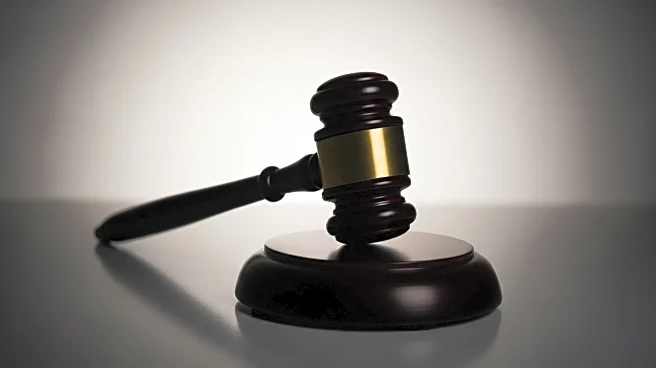What's Happening?
Former FBI Director James Comey has been indicted on charges related to his testimony before the Senate Judiciary Committee in 2020. The indictment includes one count of making false statements and one count of obstruction of justice. This development follows President Trump's recent demand for expedited legal action against Comey, whom he has criticized for years. The charges come after the dismissal of the top federal prosecutor in Northern Virginia, who had expressed doubts about the evidence against Comey. The prosecutor was replaced by one of Trump's former defense attorneys.
Why It's Important?
The indictment of James Comey is significant as it represents a major escalation in the ongoing conflict between President Trump and Comey, who has been a vocal critic of the president. This legal action could have implications for the Justice Department's independence and the broader political landscape, as it may be perceived as a politically motivated move. The case also highlights the tensions within the Justice Department, especially following the firing of Comey's daughter, Maurene Comey, from her position as an assistant U.S. attorney.
What's Next?
The legal proceedings against Comey are expected to draw significant public and media attention, potentially influencing public opinion and political discourse. The case may also lead to further scrutiny of the Justice Department's actions and decisions under President Trump's administration. Stakeholders, including political leaders and legal experts, will likely weigh in on the implications of this indictment for the rule of law and the integrity of the judicial process.
Beyond the Headlines
The indictment raises questions about the potential impact on the Justice Department's credibility and the precedent it sets for handling cases involving high-profile political figures. It also underscores the challenges faced by legal institutions in maintaining impartiality amid political pressures. The case may prompt discussions on the ethical and legal standards governing the conduct of public officials and the role of the judiciary in safeguarding democratic principles.









